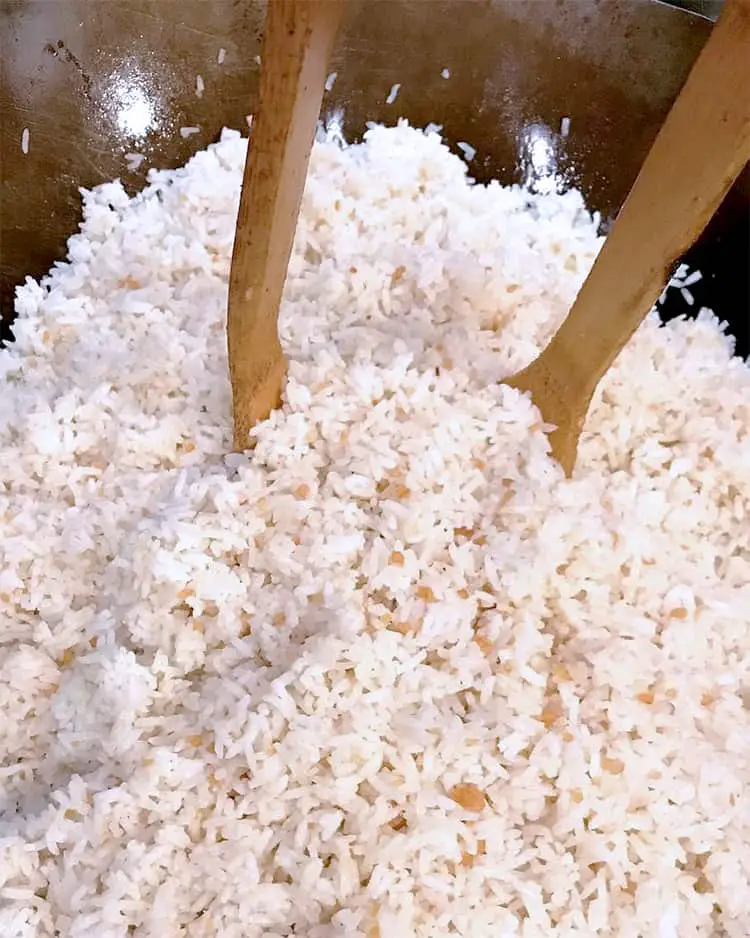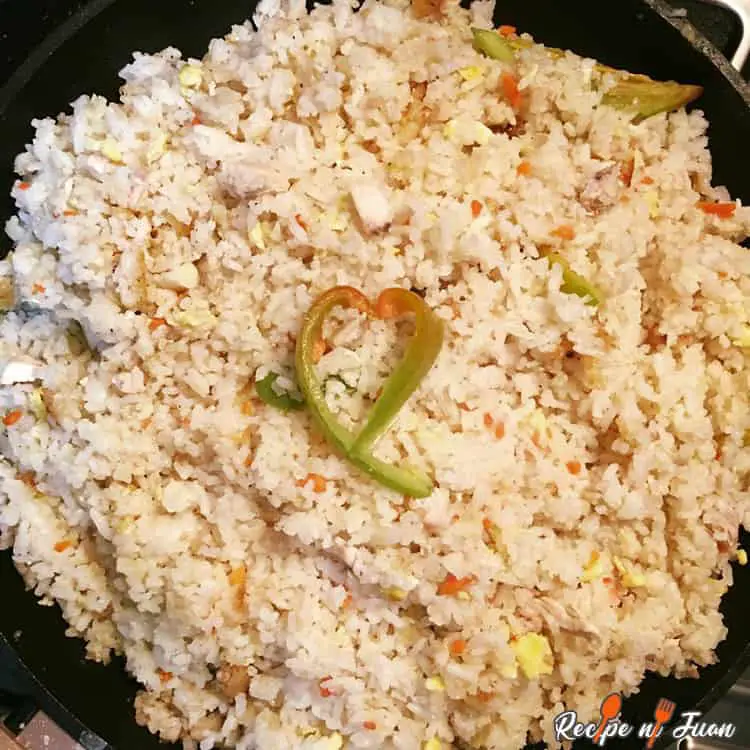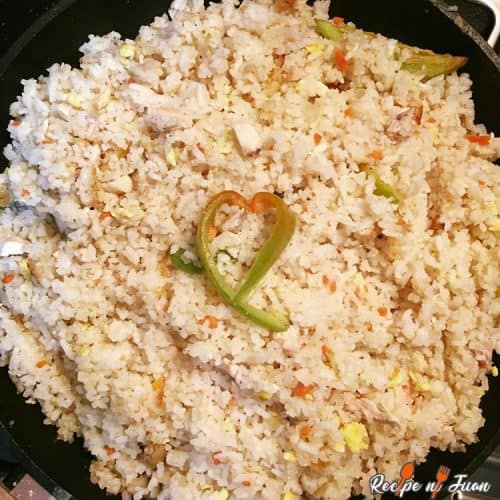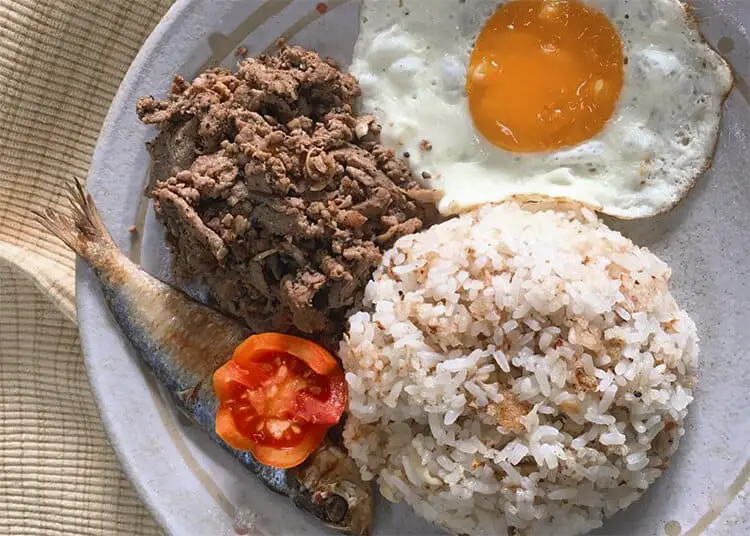Sinangag Recipe (Garlic Fried Rice) Filipino leftover rice breakfast
Sinangag or Fried rice is a similar rice dish from the Chinese’s Yang Chow Fried Rice. Filipinos are very thrifty and use their leftover rice from their dinner and cook it for their breakfast the following day.
They call this Sinangag recipe as the recycled rice. Sinangag is best made with leftover steamed rice that has been allowed to stand inside the refrigerator overnight.
The reason for this is because freshly cooked steamed rice tends to be too moist and when Sinangag is cooked with this rice, it will be very mushy and sticky.


Check out our new cookbook
Bitemybun's family recipes with complete meal planner and recipe guide.
Try it out for free with Kindle Unlimited:
Read for freeIn this post we'll cover:
Sinangag Recipe Tips
Use the kind of rice that is not too sticky when cooked. Avoid using Japanese sticky rice, use the rice grains that loosens easily when cooked.
The garlic is the main ingredient in this sinangag recipe well aside from the rice. The fried garlic gives an irresistible aroma and a distinctive flavor.
Tip: these are must-have garlic presses that save you a LOT of time
Sinangag is best paired with fried eggs and cured Beef or Tapa. Thus, the name Tapsilog or Tapa, Sinangag and Egg (fried rice).

Choices for side dishes for Sinangag
Acronyms know all of the combinations.
- Tosilog or Tocino, Sinangag, and Itlog. Tocino is a sweet cured pork.
- Longsilog is Longganisa, Sinangag and Itlog
- Bangsilog is Bangus, Sinangag and Itlog.

Sinangag Recipe (Garlic Fried Rice)
Ingredients
- 4 cups cold, cooked white rice
- ½ cup oil
- 1 head garlic peeled and minced
- salt and pepper to taste
Instructions
- In a bowl, break cold rice to separate grains.
- In a small pan over low heat, heat oil. Add garlic and cook, stirring occasionally, for about 10 to 15 minutes or until golden brown. With a slotted spoon, remove from pan and drain on paper towels. Garlic will crisp as it cools.
- In a wok or wide, heavy-bottomed skillet over high heat, heat 2 tablespoons of the oil until very hot. Add rice and cook, spreading the rice on the entire cooking surface of the pan for about 45 seconds or until grains start to sizzle and then tossing to redistribute. Repeat a few times until rice is heated through. Add garlic bits and stir to combine. Season with salt and pepper to taste.
Notes
Nutrition

The secret to a good Sinangag is to coat your hands with salt and manually loosen the rice before stir-frying. You can also add some fried Garlic chips as a garnish to your sinangag.
Sinangag is not only served as breakfast in the Philippines, but you can also order this fried rice at some restaurants even during lunch or even dinner.
This Sinangag recipe is a keeper in your recipe box just in case you have leftover rice, and you decided to make good use of leftovers. Salamat!
Want to pair with the main course? Try this Hot and spicy Filipino Bicol Express recipe
Check out our new cookbook
Bitemybun's family recipes with complete meal planner and recipe guide.
Try it out for free with Kindle Unlimited:
Read for freeJoost Nusselder, the founder of Bite My Bun is a content marketer, dad and loves trying out new food with Japanese food at the heart of his passion, and together with his team he's been creating in-depth blog articles since 2016 to help loyal readers with recipes and cooking tips.
